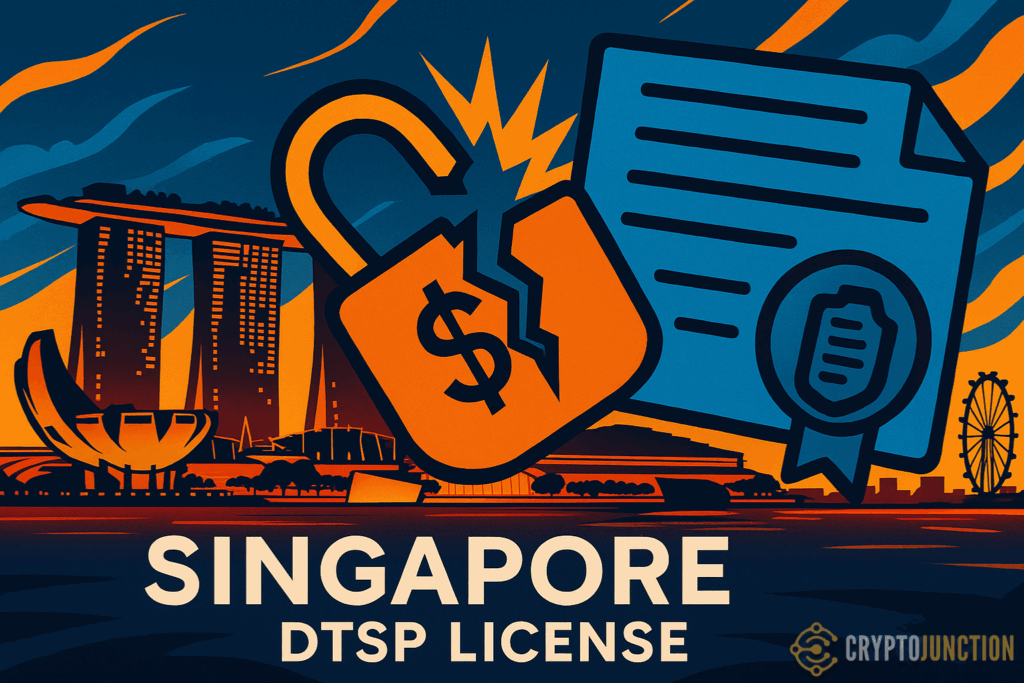Singapore’s report turned the tide in the crypto space. The Monetary Authority of Singapore (MAS) has introduced new rules for companies operating crypto services out of the country. As of June 30, 2025, companies without a Digital Token Service Provider (DTSP) license face fines up to SGD 250,000 (USD 200,000) or jail for three years under the new crypto rules in Singapore.
And here’s the kicker: MAS reports that it will generally not issue such licenses. This means most companies are now at the brink of shutting down or facing serious legal issues under Singapore’s new crypto regulations.
Crypto Rules Creating A Compliance Cliff
In Singapore, there is a new set of regulations marking a shift in its crypto rules. Companies incorporated in Singapore must adhere to new crypto regulations, even if providing token services to an international audience of small scale. MAS is not concerned with where your servers are located or your user base. The regulation’s focus is on the company’s base of operation.
The DTSP license requirements that you must pass include a base capital of SGD 250,000, a compliance officer, annual audits, and penetration testing. The good news is that MAS has communicated licenses will be given in very few cases under Singapore’s new DTSP rules.
Singapore sees Crypto Exodus Of Companies
Big companies are leaving due to Singapore’s new crypto regulations. Exchanges like Bybit and Bitget are cutting staff in Singapore. WazirX moved their base to Panama; this decision was influenced by the challenges posed by Singapore new crypto rules.
The crackdown is more than symbolic. It affects jobs, strategy, and Singapore’s reputation as a crypto friendly hub. Under the pressure of new crypto laws in Singapore, MAS is standing firm. There will be no grace period and no slow phase out. Comply or quit.
Neighboring Nations Seize The Opportunity
While Singapore is tightening its control with new crypto rules, Thailand and the Philippines are developing more friendly policies. Singapore’s move to new crypto regulations has pushed Thailand to allow crypto-related tourist spending and capital gains tax breaks. The Philippines is improving regulation but a gradual approach.
At present, Dubai and Hong Kong are becoming crypto havens. With clear rules and friendly licensing policies, they are welcoming Singapore’s crypto refugees with open arms and office space amidst Singapore’s new crypto rules.

